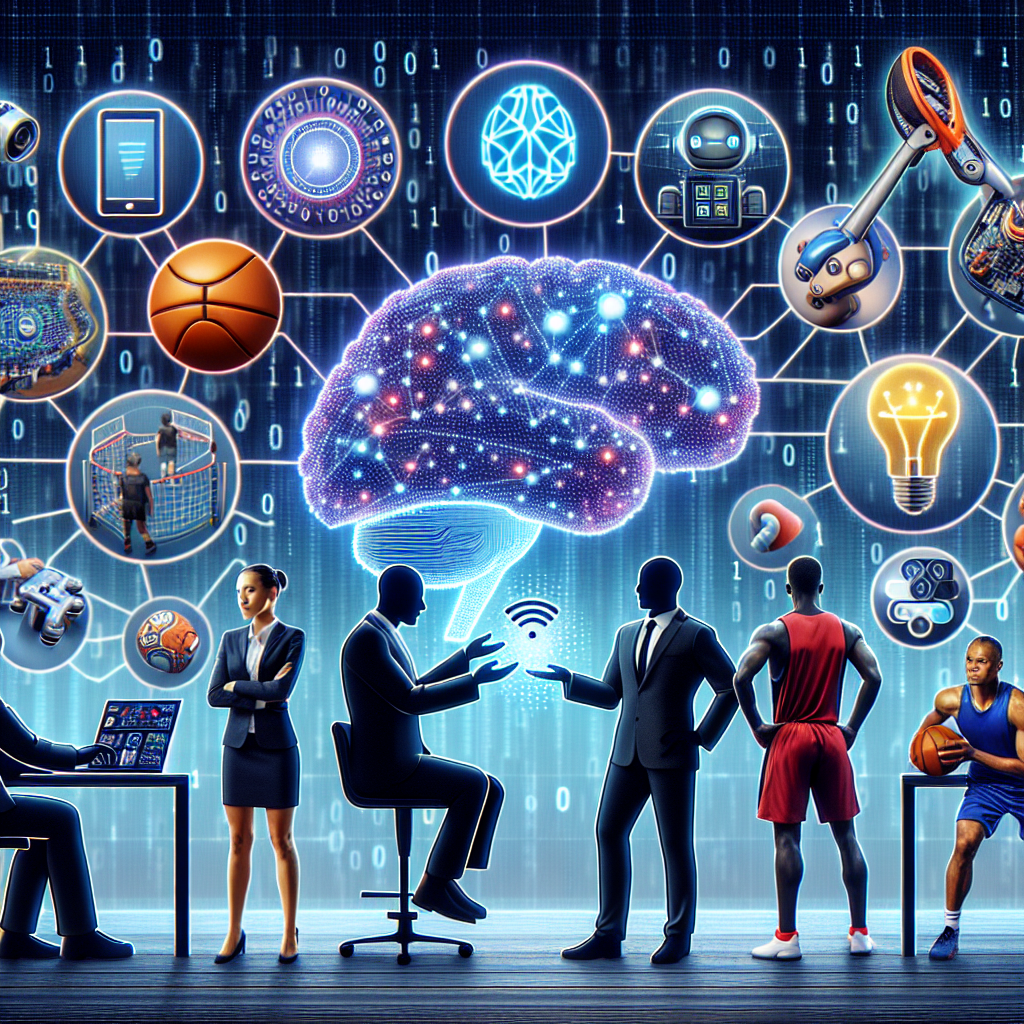AI (Artificial Intelligence) has been revolutionizing the world of sports marketing in recent years, providing organizations with powerful tools to analyze data, personalize customer experiences, and optimize marketing strategies. From predicting fan behavior to creating personalized content, AI has the potential to transform how sports teams and brands engage with their audiences. In this article, we will explore the use of AI in sports marketing strategies and its benefits, as well as address commonly asked questions about this emerging technology.
Benefits of Using AI in Sports Marketing Strategies
1. Predictive Analytics: AI algorithms can analyze large volumes of data to predict fan behavior, preferences, and trends. This allows sports organizations to tailor their marketing campaigns to target specific audience segments and maximize engagement.
2. Personalized Content: AI-powered tools can create personalized content for fans based on their preferences, demographics, and past interactions. This helps sports brands build stronger relationships with their audience and increase loyalty.
3. Real-time Insights: AI can provide real-time insights into fan engagement, social media trends, and marketing performance. This allows sports organizations to make data-driven decisions and adjust their strategies on the fly to maximize ROI.
4. Automated Marketing: AI can automate repetitive marketing tasks such as email campaigns, social media posts, and customer service responses. This frees up time for marketers to focus on strategic initiatives and creative campaigns.
5. Enhanced Fan Experience: AI can enhance the fan experience by providing personalized recommendations, exclusive content, and interactive experiences. This helps sports brands build a loyal fan base and drive revenue through ticket sales, merchandise, and partnerships.
6. Sponsorship Opportunities: AI can help sports organizations identify potential sponsorship opportunities based on fan demographics, interests, and behavior. This allows brands to target the right partners and create mutually beneficial relationships.
7. Competitive Advantage: By leveraging AI in their marketing strategies, sports organizations can gain a competitive advantage in a crowded marketplace. AI allows brands to stay ahead of trends, engage with fans in innovative ways, and drive revenue growth.
Commonly Asked Questions about AI in Sports Marketing
Q: How can AI help sports organizations increase fan engagement?
A: AI can help sports organizations increase fan engagement by predicting fan behavior, creating personalized content, and providing real-time insights into marketing performance. By leveraging AI-powered tools, sports brands can tailor their marketing campaigns to target specific audience segments and maximize engagement.
Q: How can AI improve the fan experience at sporting events?
A: AI can improve the fan experience at sporting events by providing personalized recommendations, exclusive content, and interactive experiences. For example, AI-powered apps can offer fans personalized offers on concessions, merchandise, and ticket upgrades based on their preferences and past interactions.
Q: How can sports organizations use AI to drive revenue growth?
A: Sports organizations can use AI to drive revenue growth by identifying sponsorship opportunities, optimizing ticket sales, and maximizing merchandise sales. By leveraging AI-powered tools, sports brands can target the right partners, price tickets competitively, and create personalized marketing campaigns to drive revenue.
Q: What are the challenges of implementing AI in sports marketing strategies?
A: Some of the challenges of implementing AI in sports marketing strategies include data privacy concerns, integration with existing systems, and the need for specialized skills and expertise. Sports organizations may also face resistance from fans or employees who are skeptical of AI technology.
Q: How can sports organizations measure the ROI of AI in their marketing strategies?
A: Sports organizations can measure the ROI of AI in their marketing strategies by tracking key performance indicators such as fan engagement, revenue growth, and customer satisfaction. By analyzing the impact of AI-powered initiatives on these metrics, sports brands can assess the effectiveness of their AI strategies and make data-driven decisions.
In conclusion, AI has the potential to revolutionize sports marketing strategies by providing organizations with powerful tools to analyze data, personalize customer experiences, and optimize marketing campaigns. By leveraging AI-powered tools, sports brands can increase fan engagement, drive revenue growth, and gain a competitive advantage in a crowded marketplace. As AI continues to evolve, sports organizations will need to stay ahead of the curve and embrace this emerging technology to stay relevant and engage with their audiences in innovative ways.

